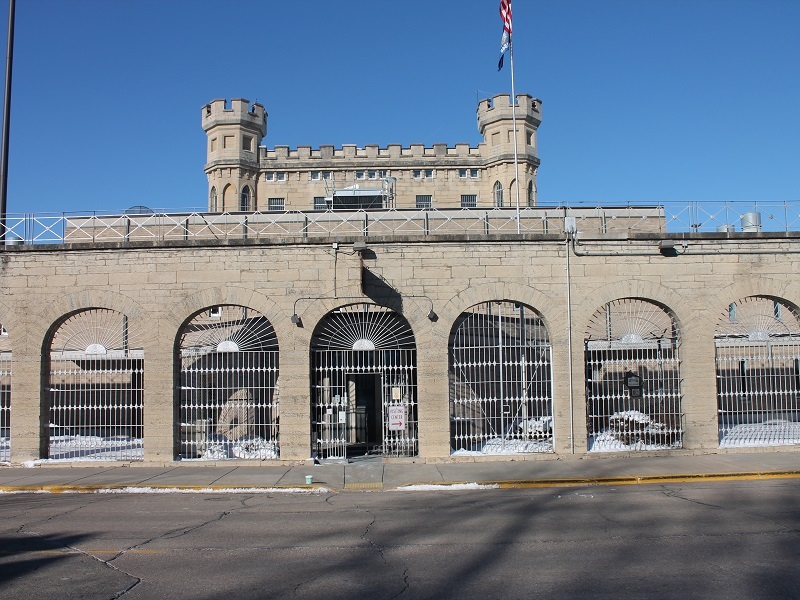More Prisons Won’t Reduce Crime
Alternatives to prison for lesser offenders save taxes, lower crime.
While other states are substantially reducing their prison populations and closing prisons with virtually no negative effect on public safety, some Wisconsin politicians want to build a brand-new, 2,000-bed, $350 million prison.
As one way to fill it, these Wisconsin politicians want to force judges to send more people convicted of certain crimes to prison, no matter the circumstances of the particular case.
The politicians are pushing mandatory minimum prison sentences for more crimes. They also want to force probation and parole agents to recommend revoking more people from supervision so they are likely sent to prison, even when the probation and parole agent deems it unnecessary.
If politicians pass more so-called “tough on crime” legislation, increase the penalties for crimes, and force judges to send more people to prison, even when doing so is completely unnecessary in a particular case, they know they can fill as many prisons as they want.
But unlike in Wisconsin, other states have taken a far more fiscally responsible, common-sense approach to prison reform. For example, politicians in both red and blue states like Texas, New York, South Carolina, New Jersey, California and Michigan have diverted people away from prisons and closed prisons.
Politicians in these states have done so through legislative and policy changes designed to make it so fewer people go to prison, and if they do go to prison, their sentences are shorter.
Well more than half of the states in this country have passed legislation to cut back on mandatory minimum sentences.
States that have implemented these policies for the longest periods of time, such as New York, New Jersey and California, have many years of evidence to show reducing prison populations and closing prisons has not caused spikes in crime nor has doing so had a negative effect on public safety.
Starting in the late 1990s or mid-2000s, these three states reduced their prison populations by approximately 25 percent. During that time, violent crime rates were going down nationally. However, violent crime rates decreased at greater rates in New York, New Jersey and California than the nationwide average.
Between 1999 and 2012, when New York and New Jersey reduced their prison populations by 26 percent, the national prison population increased by 10 percent.
If you need more evidence that Wisconsin politicians’ “more prison” legislation is misguided and unnecessary, look to our neighbors in Minnesota. The populations of Minnesota and Wisconsin are roughly equal. Both states have similar crime rates. However, Wisconsin has more than double the prison population of Minnesota.
Prison reform and evidence-based sentencing has bipartisan support from national Democrats and Republicans, many of whom understand our current path is unsustainable. For example, conservative billionaire Charles Koch, a man often demonized by liberals, supports initiatives aimed at curbing what he calls the “over-criminalization of America.” Newt Gingrich is involved in similar efforts.
While “do the crime, serve the time” is a catchy slogan, incarceration is not always the most effective way to reduce crime.
A 1999 comprehensive study titled “The Effects of Prison Sentences on Recidivism,” which controlled for risk factors like criminal history and substance abuse, found longer prison sentences were associated with a 3 percent increase in repeat offenders.
Prisons in the United States are not filled just with those who committed violent crimes, such as murder or assault. Statistics show more than half of prison inmates are serving sentences for nonviolent crimes — property, drug and public order offenses. Many people in prison are addicted to drugs or alcohol, and prisons are rarely equipped to effectively deal with addiction.
To make our communities safer and reduce recidivism, we must not automatically and reflexively just “build more prisons.” To be sure, some people have committed crimes that necessitate prison sentences. But for many others, probation and alternative-to-incarceration programs are excellent options because they can effectively hold people accountable, reform them into productive citizens again, and help to reduce an enormous burden on taxpayers.
Many states have implemented policies that have done just that, and our Wisconsin politicians should look to those states for guidance.
Casey Hoff is a criminal defense attorney based in Sheboygan.
Op-Ed
-
Wisconsin Candidates Decry Money in Politics, Plan to Raise Tons of It
 Dec 15th, 2025 by Ruth Conniff
Dec 15th, 2025 by Ruth Conniff
-
Trump Left Contraceptives to Rot; Women Pay the Price
 Dec 8th, 2025 by Dr. Shefaali Sharma
Dec 8th, 2025 by Dr. Shefaali Sharma
-
Why the Common Council’s Amended Budget is Good Policy for Milwaukee
 Nov 20th, 2025 by Alds. Marina Dimitrijevic and Russell W. Stamper, II
Nov 20th, 2025 by Alds. Marina Dimitrijevic and Russell W. Stamper, II





















Fortunately for criminal defense attorneys, they rarely have to, or choose to, live in the communities that are most affected by the criminal behavior of repeat offenders. They are free to peddle their pro-criminal nonsense consequence-free, unlike the suffering members of those communities that benefit the most from having dangerous individuals removed and kept away from the law-abiding, hard-working members that only want a good life for themselves and their families.
WashCoRepub, you are making no sense. Please research the issue before opening your mouth. The world would be a better place.
Who’s best interest is it to have a higher crime rate. Republicans of course.
1. They get to use their southern strategy and racism to have a boogeyman to blame to there white supremacist base without using the N word.
2. Campaign donations from Prison Corporation of America.
3. To feed their unending need to punish others.
Sure Washington county repub, like all the big bad boys out there in your neck of the white woods.
@WashCoRepug, why don’t you take some personal responsibility and just move!?
Wisconsin does not need more prisons. Wisconsin needs criminal justice reform, starting with ending the abject draconian FAILURE of cannabis prohibition and the racist Jim Crow style enforcement that underpins it.
Dump Walker 2018
Dump ALL Republicans 2018